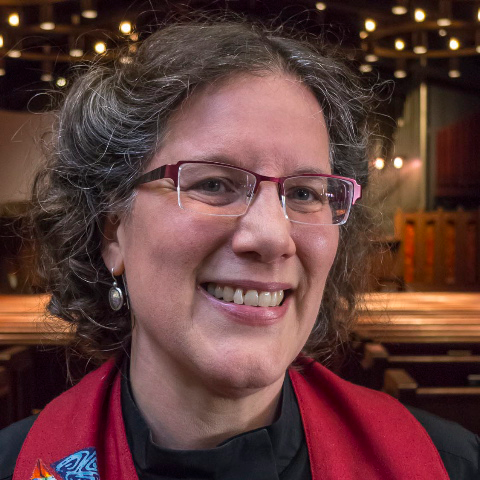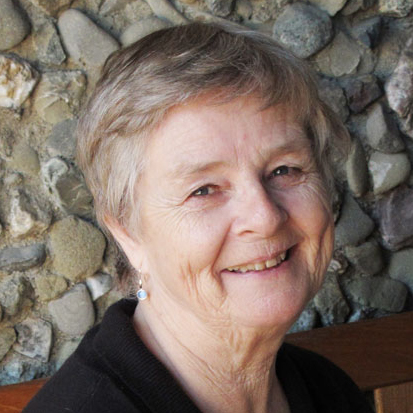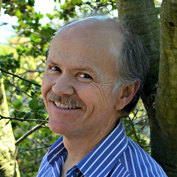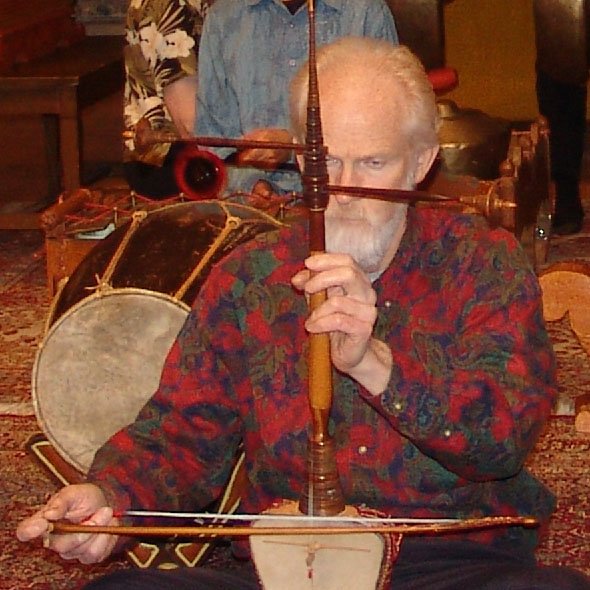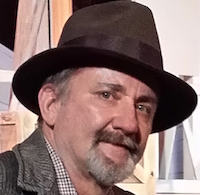{podcast_episode 138}
Call to Worship – an Irish Blessing, adapted
May the blessing of light be on you, light without and light within.
May the blessed sunlight shine on you and warm your heart until it glows like a great fire, so strangers and friends may come and warm themselves at it.
And may light shine out of the two eyes of you, like candles set in the window of a house, bidding the wanderer come in out of the storm.
And may the blessing of the rain be on you –may the soft, sweet rain fall upon your spirit so that the little flowers may spring up and shed their sweetness on the air.
And may the blessings of the great rains be on us and wash our spirits fresh and clean.
Reading
Unitarian Universalists draws from many sources: personal experiences, wisdom from the world’s religions, humanist teachings, prophetic and poetic words from many cultures.
Today’s reading is From Blossoms, a poem by Li-Young Lee.
Li-Young Lee was born in 1957 in Jakarta, Indonesia, to Chinese parents. In 1959, the Lee family fled the country to escape anti-Chinese sentiment and after a five-year trek through Hong Kong, Macau, and Japan, they settled in the United States in 1964. Li-Young Lee now lives in Chicago.
Healing Blessings
Congratulations!
Studies show that regular church attendance leads to greater health and longer lives.
It’s been said that we all have one foot in the grave and one foot on the banana peel.
Given this precarious position, what is healing?
Your dog, who wags its tail in greeting, curls up beside you when you are sick or lonesome and is ready to play if you are?
Your cat that sits on your lap or your computer keyboard?
Studies show that simply petting a dog or cat lowers heart rates and blood pressure. Animals are healing.
A very intellectual couple felt it important to own an equally smart pet. So they went shopping. At a kennel specializing in their favorite breed, they found a dog they liked quite a lot. They were impressed, purchased the animal, and went home. When they asked the dog to fetch a bottle of Cabernet Sauvignon from before 1980, she did it in a flash. When they instructed her to recite pi to 100 digits, she tapped her paw on the ground, correctly and quickly completing the sequence.
She could fetch any book from the bookshelf.
That night they had friends over. They were so proud of their new brilliant dog and her skills, they called the dog in and showed her off a little. The friends were impressed, and asked whether the dog was able to do any of the usual dog tricks, too. This stopped the couple cold, since they hadn’t thought about ‘normal’ tricks.
“Well,” they said, “let’s try it out.”
The woman stood up and clearly pronounced the command: “Heel!” Quick as a wink, the dog jumped up, put her paw on the man’s forehead, closed her eyes in concentration, and bowed her head.
(joke told on Healer to Healer: Consulting Services at www.healertohealer.com)
Yep, animals are healers.
In our neighborhood, a cat makes the rounds. He’s black and white and rubs his fury body up against our legs. We call him Little Richard after the piano pounding, heart-stopping, fiery rock and roll singer and the big cat Richard Parker in The Life of Pi.
Almost without exception, if Little Richard shows up at our door, we stop whatever we’re doing to go out to pet him.
We receive his healing blessings.
We all have wounds, broken hearts, and physical ailments. Hurt, disappointment comes with life.
And healing is possible. Poet George Herbert praises, “Who would have thought my shriveled heart could have recovered greenness?”
How can we heal so we can live life more fully now?
We can start by remembering what’s really important and what makes life worth living.
Woody Allen’s character Isaac Davis in the movie Manhattan gives his answer to why is life worth living.
“Groucho Marx, Willie Mays, the 2nd movement of the Jupiter Symphony, Louis Armstrong’s recording of Potato Head Blues, Swedish movies, Sentimental Education by Flaubert, Marlon Brando, Frank Sinatra, those incredible Apples and Pears by Cezanne, the crabs at Sam Wo’s, Tracy’s face.”
What’s really important?
In E.B. White’s book Stuart Little we get this answer, “A shaft of sunlight at the end of a dark afternoon, a note of music, and the way the back of a baby’s neck smells if it’s mother keeps it tidy…”
“Correct,” said Stuart. “Those are the important things.”
Would you add golden peaches, sunshine, blue skies, fog, jasmine?
Would you add poetry, music, singing, laughter, tears, gratitude, generosity, loving community?
No wonder regular church attendance leads to health.
Music is healing.
Physician and neurologist Oliver Sacks finds that with the right music, people with Parkinson’s disease who can’t utter a syllable, sing; people who can’t take a step, dance.
What would make your list of what makes life worth living?
And if we watched you live your days would we see your actions align with what you value?
Writer Anne Lamott says,
“I think joy and sweetness and affection are a spiritual path.
We’re here to know God, to love and serve God,
[Let me say that for God
you can say what is dearest, deepest, freshest.
We’re here to know what is dearest, deepest, freshest
and to serve what is dearest, deepest, freshest.
And Anne Lamott says, We’re here..,]
to be blown away by the beauty and miracle of nature.
You just have to get rid of so much baggage
to be light enough to dance, to sing, to play.
You don’t have time to carry grudges;
you don’t have time to cling to the need to be right.”
Letting go of baggage, grudges, and the need to be right makes space for joy, sweetness, affection.
Kentucky farmer, poet, activist Wendell Berry says,
Healing is impossible in loneliness;
it is the opposite of loneliness.
Conviviality is healing.
To be healed
we must come with all the other creatures to the feast of Creation.
(Wendell Berry, “The Body and the Earth”, in The Art of the Commonplace)
What do you see served at the feast of creation?
Warmth, hospitality, good food for the body and the spirit? We work for social justice, we serve to create beloved community because we believe life is worthwhile and more and more people should be at the table where the feast of creation is spread. The disease of our society, the pain of the world turns toward healing when we make good relationships.
Studies show college students who read aloud to patients in hospitals and nursing homes feel better about their lives. The time together is healing for the listeners and the readers.
It is hard in busy lives to make the time for what heals.
Some of you are parents caring for young children, and at the same time, you are care givers for your parents. You have demanding professional jobs. It is hard to make time for what heals, but how can we not?
If a roomful of adolescents are asked if they have ever considered suicide, most every hand will go up.
Young adulthood is a time when we let go of childhood. A part of us is dying. This can be true at any age. We are always needing to let go of something.
Rather than jumping off a bridge, what’s needed is for a part of you to die, for you to let go of a part of what has been and then cross over the bridge into a next chapter of your life.
Life isn’t all peaches and cream.
None of us will get out of here alive. We are all terminal cases. How can we live now so that when it comes time to die, we can die healed? Practice.
Our friend Penny’s cancer progressed.
She got together with her former husband.
After an unhappy divorce, it had been years since they had seen each other. After their visit, Penny said she couldn’t remember what it was she hadn’t liked about him.
Penny wasn’t cured of illness, but she was healed.
Tom died of cancer at age 24. His parents Dena and Bob said that in the short four months between his diagnosis and his death, Tom loved more than maybe most people do in a lifetime.
Sometimes a person’s priorities all get straight, their relationships become clear and right, so at the time of death they are more alive than they have ever been.
My father Charlie said about his death –
“It’s time. I’m ready. I’m not afraid. I feel loved.
I’ve just got to be patient and wait this thing out.”
I showed him a scrapbook of his work achievements
and he wasn’t interested.
He said, “Oh, that was all ego.”
When I asked him which was the best chapter of his life,
he said, “This one.”
The doctor said Charlie’s heart was working at 20%. I beg to differ. Sure, physically, his heart was very weak. In every other way, spiritually, emotionally, his heart was strong. In the assisted living facility, Charlie kept on the wall beside his bed a list of the names of the people who nursed him, assisted him, and cleaned his room. He wanted to speak his appreciation to each person by name.
In a poem, Rumi says,
“If you can go a week and not belittle anyone
in thought, word, or deed…
let me know, for I am looking for an apprentice, an heir.”
I didn’t hear Charlie belittle anyone, just warm regard for all.
Penny, Tom, Charlie were good apprentices to Rumi.
Each of us can be!
Practice going a week and not belittling anyone in thought, word or deed.
Thursday night Bill and I celebrated with dear people our friend Dave’s 77th birthday. Dave’s life has been spent being a successful business man, a backpacker, a rock climber, a meditator, partner, father, grandfather, friend.
Now Dave has a progressive lung disease. He is never without a large canister of oxygen and a breathing tube. At dinner Dave told us of his experience of this time in his life. He feels himself relaxing, opening, extending, becoming not just himself but merging with all the experiences he is having, connecting with it all. There is such a softness and gentleness about Dave.
The two of us had wondered what to give Dave for his birthday, and had decided on giving the poem From Blossoms along with a bag of fresh peaches. Dave set the fruit on top of the water glasses, made a shrine to peaches and then read the poem aloud. You could see Dave picturing the scene as he read.
From blossoms comes
this brown paper bag of peaches
we bought from the boy
at the bend in the road where we turned toward
signs painted Peaches.
From laden boughs, from hands,
from sweet fellowship in the bins,
comes nectar at the roadside, succulent
peaches we devour, dusty skin and all,
comes the familiar dust of summer, dust we eat.
Dave stops to catch his breath.
His tender understanding of the words takes the breath away. He reads on, words sometimes catching in his throat.
O, to take what we love inside,
to carry within us an orchard, to eat
not only the skin, but the shade,
not only the sugar, but the days, to hold
the fruit in our hands, adore it, then bite into
the round jubilance of peach.
There are days we live
as if death were nowhere
in the background; from joy
to joy to joy, from wing to wing,
from blossom to blossom to
impossible blossom, to sweet impossible blossom.
Dave reads and we glimpse the dissolving of the boundaries between him and us, between eater and eaten. This is peach-eating communion, holy sacrament, healing blessings.
May the blessing of the dusty earth be on you,
–the great round earth,
may you ever have a kindly greeting
for those you pass along life’s roads.
May the earth be soft under you when you rest upon it,
tired at the end of day. and may it rest so lightly over you
when at the last, you lay out under it,
that your spirit may be quickly set free.
(continuing of the adapted Irish Blessing from the Call to Worship)
May love bless you and keep you now and always.







